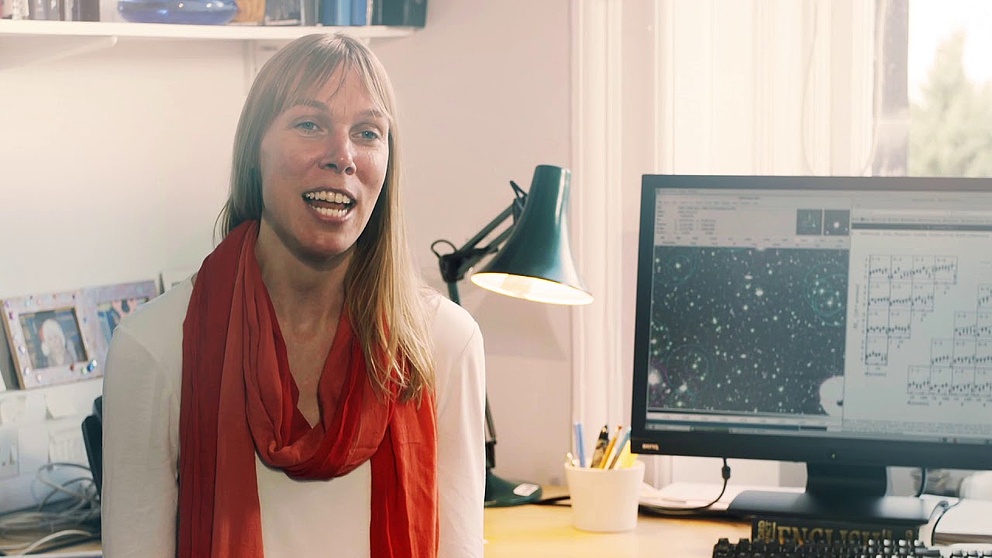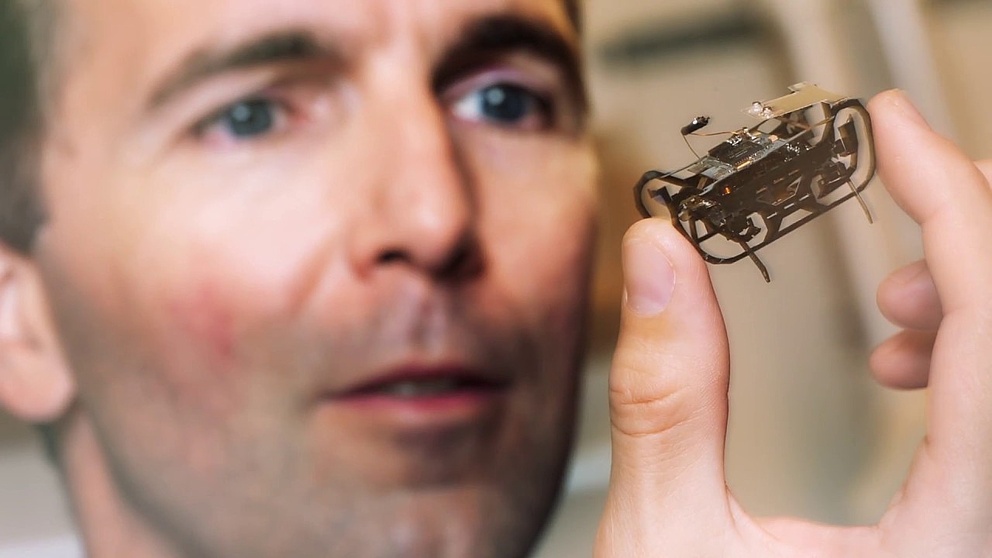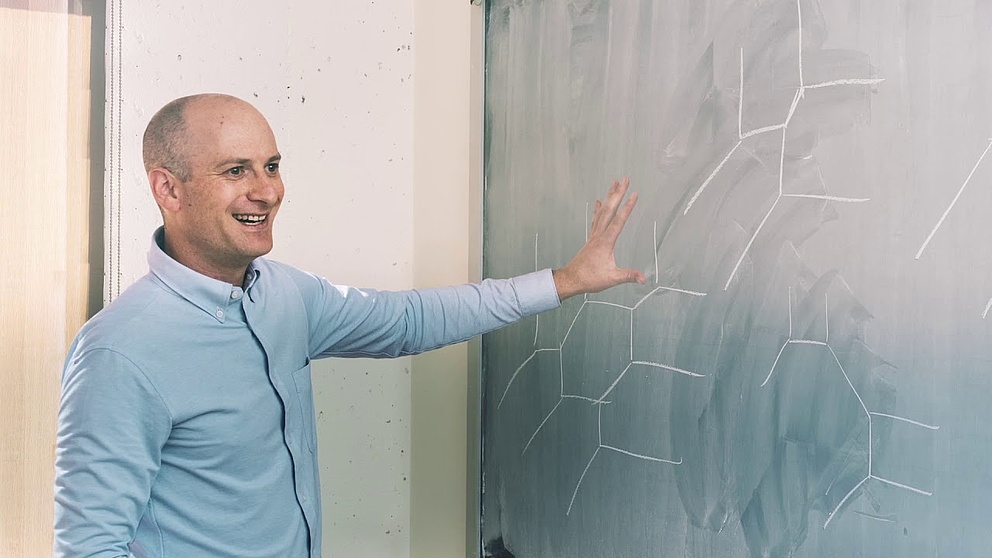
Kontakt
Presse, Kommunikation und Marketing
Tel.: +49 228 833-144
Fax: +49 228 833-441
presse[at]avh.de
British astrophysicist receives award worth €1.5 million.
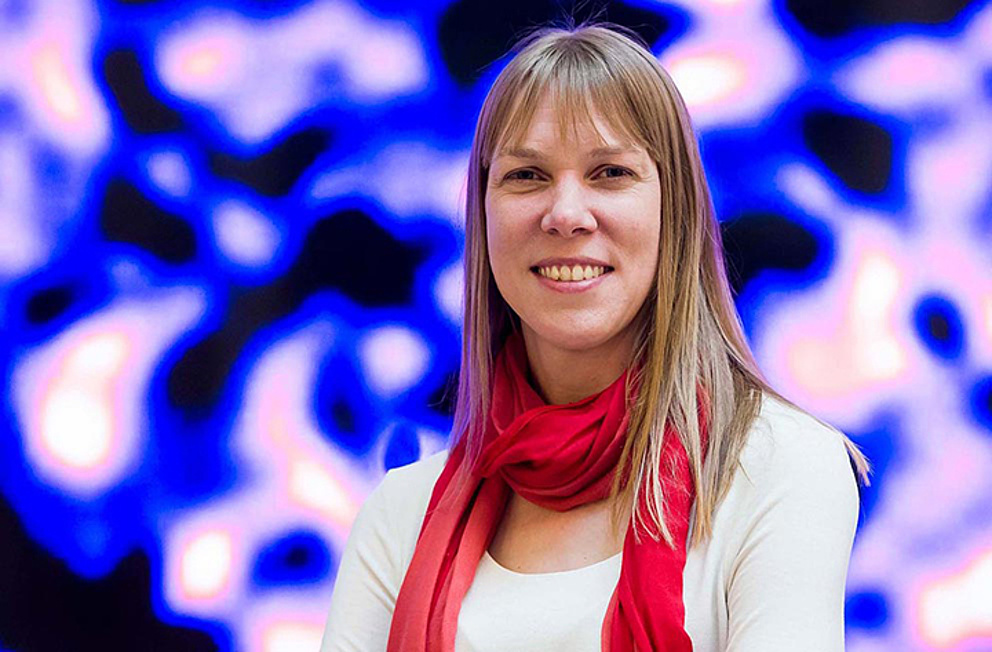
Catherine Heymans from the University of Edinburgh in Scotland is the first winner of the new Max Planck Humboldt Research Award. The award, which is worth €1.5 million, is financed by funds from the Federal Ministry of Education and Research (BMBF) and awarded jointly by the Max-Planck-Gesellschaft and the Alexander von Humboldt Foundation. In addition to the astrophysicist, whose research focuses on Dark Energy, honours also went to the mathematician Sam Payne and the robotics expert Robert Wood, who received the Max Planck Humboldt Medal and prize money of €60,000 each. The awards will be formally presented in Berlin on 7 November by the President of the Max-Planck-Gesellschaft, Martin Stratmann, the President of the Alexander von Humboldt Foundation, Hans-Christian Pape, and the BMBF State Secretary, Michael Meister.
"Basic research is an investment into our future, carrying forward the science of tomorrow. It enriches our society in many ways: It increases our knowledge and is the seed for ideas and innovations of the future. If top scientists like Catherine Heymans help us understand the universe, they are also creating a basis for future technologies. Germany is one of the innovation leaders today, precisely because it is strong in basic research. We must maintain this strength. That's why we're delighted when we can attract outstanding scientists like Catherine Heymans to Germanys as a hub of research," explains Federal Research Minister Anja Karliczek.
The astrophysicist Catherine Heymans from the Institute of Astronomy at the University of Edinburgh has been researching Dark Energy for many years. Nearly three quarters of the universe is thought to be made up of this mysterious entity, which causes the Universe to expand at an ever-increasing rate. Like Dark Matter – which comprises about one quarter of the universe – an understanding of the origin of Dark Energy remains elusive. The jury highlighted that Catherine Heymans has greatly advanced this field with her work.
The astrophysicist says: “In order to understand this dark secret, we may well need a new kind of physics which will forever change our view of the cosmos.” By observing far distant celestial objects, the scientist wants to find out whether Einstein’s theory of gravitation has to be expanded in order to explain certain phenomena. Heymans is the author of the book The Dark Universe and co-author of more than 140 scientific publications.
“I am looking forward to a much closer cooperation with my colleagues at the University of Bonn and other institutions in Germany thanks to the Max Planck- Humboldt Research Award,” Heymans says. The scientist will use the prize money to set up a team at the Argelander-Institute for Astronomy (AlfA) in Bonn. Peter Schneider from the AlfA nominated the researcher for the 2018 award. “We have worked together with Catherine Heymans very successfully for many years now,“ Schneider says. “We will put the award to the best possible use.”
Heymans and Schneider have developed a concept for a new kind of German Centre of Cosmological Lensing (GCCL) at the University of Bonn, which will also involve researchers from the Max Planck Institute for Astrophysics in Garching, the Ludwig Maximilian University in Munich and the University of Heidelberg.
After studying Physics and Astrophysics at the University of Edinburgh, Catherine Heymans completed her doctorate at Oxford. She then researched at the Max Planck Institute for Astronomy in Heidelberg, at the Canadian Institute for Theoretical Astrophysics, at the University of British Columbia (Canada) and at the Institut d’Astrophysique de Paris. Heymans has worked at the University of Edinburgh since 2008, where she became a professor in 2016. She has won many awards, including a starting grant from the European Research Council (ERC), an ERC Consolidator Grant as well as the UK Science Communicator’s Award.
The Max Planck Humboldt Medals will go to:
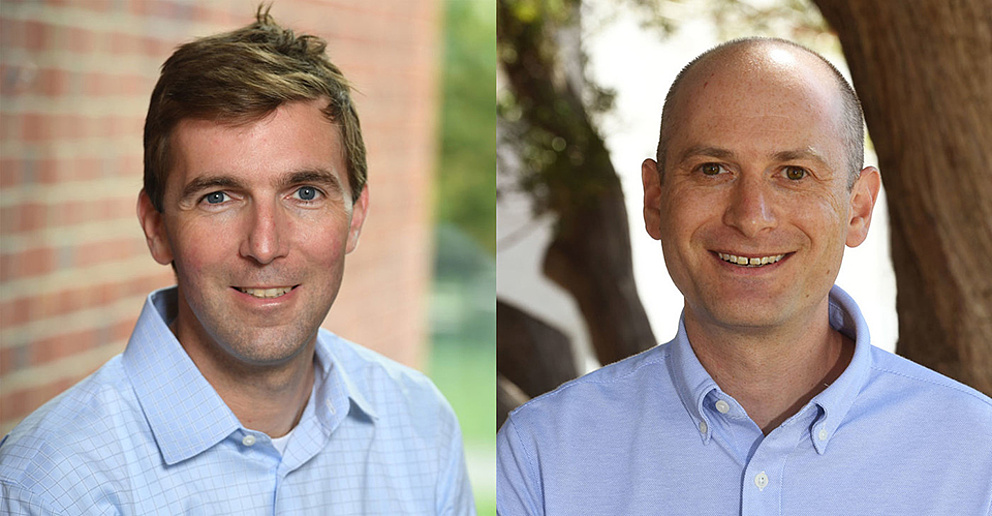
- the electrical engineer Robert Wood, Professor at Harvard University, for his contributions in the field of Soft Robotics. If robots are to interact safely with humans, they must be able to move smoothly and flexibly, like a human, and not as unflinchingly as e.g. during car production. Robert Wood develops soft actuators and artificial muscles, among other things. Advancements in bio-inspired design, in processing different materials using self-organization and in developing innovative sensors and intelligent materials, have enabled him to construct a robotic bee which can fly just like its natural counterpart.
- the mathematician Sam Payne, Professor at the University of Texas in Austin, for his contributions in the field of Tropical Geometry. Tropical Geometry combines the methods of Algebraic Geometry and Abstract Algebra – in particular in relation to the study of rings – with Geometry and Discrete Mathematics. The latter deals with operations in finite or at least countable infinite quantities; in contrast to analysis, continuity does not matter here. The findings from Tropical Geometry influence many different areas, such as when solving optimization problems or in mathematical physics. Payne already researched at the Max Planck Institute for Mathematics during a six-month guest visit.
For the first time from 2018, the Max-Planck-Gesellschaft and the Alexander von Humboldt Foundation will be awarding the realigned Max Planck Humboldt Research Award, which is worth €1.5 million, exclusively to a researcher from a country outside Germany. The award also includes personal prize money in the amount of €80,000. It focuses on individuals whose work is characterized by outstanding future potential. The award helps to attract innovative scientists working abroad to a German university or research facility for a limited stay. The award is funded by the Federal Ministry for Education and Research and replaces the Max Planck Research Award, which the Humboldt Foundation and the Max-Planck-Gesellschaft previously awarded to two researchers each year.
Awards will alternate between the natural and engineering sciences, life sciences and humanities and social sciences. In addition, two further persons can be nominated and each receive a Max Planck Humboldt Medal. These come with prize money in the amount of €60,000.
The award winners on YouTube
Further information
The Alexander von Humboldt Foundation
Every year, the Alexander von Humboldt Foundation enables more than 2,000 researchers from all over the world to spend time researching in Germany. The Foundation maintains a network of well over 29,000 Humboldtians from all disciplines in more than 140 countries worldwide – including 55 Nobel Prize winners.

